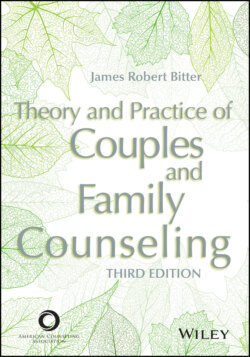Читать книгу Theory and Practice of Couples and Family Counseling - James Robert Bitter - Страница 106
Handling Relational Matters in an Individual Context
ОглавлениеGiven the propensity of both the law and professional codes to designate as the client each individual, a host of relational concerns must be clarified and addressed before counseling or therapy can begin. Among these issues are “extramarital affairs, commitment to the relationship, sexual activities/preferences/orientations, criminal activities, substance use, and mental states suggesting the risk of violence and dangerousness to self or others” (Woody & Woody, 2001, p. 31). Similar issues for children and adolescents must be considered, as must “behaviors that pose potential risk to the child’s health and welfare, e.g., truancy, substance use, gang affiliations, etc.” (p. 31).
If both your professional approach and your personal values are grounded in the idea that joining with family secrets does not promote the welfare of the family, what do you do with this predicament? IAMFC (2017) states, “Couple and family counselors do not participate in keeping secrets for or from clients” (p. 1).
All of the family practice codes support individual confidentiality, but only if it does not contribute to maintaining unhealthy family dynamics. There is not a great deal of direction in these guidelines for handling ethical dilemmas related to the common issues we have discussed. In holding to individual confidentiality within the context of family counseling or therapy, obvious concerns surface with the principle of beneficence and your obligation to promote client welfare.
